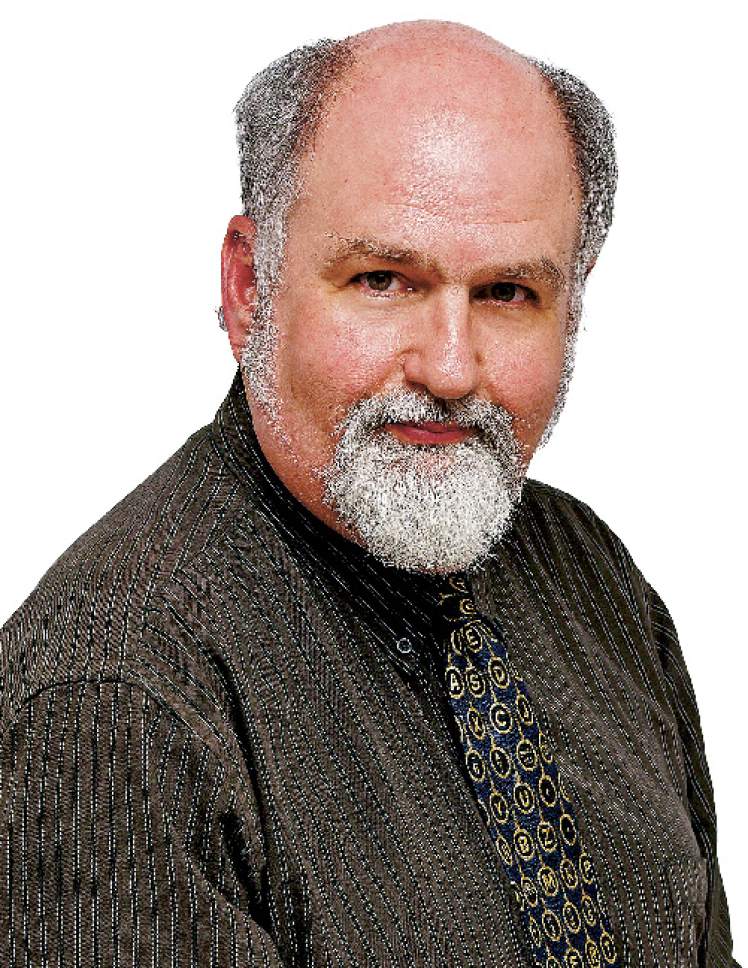This is an archived article that was published on sltrib.com in 2017, and information in the article may be outdated. It is provided only for personal research purposes and may not be reprinted.
"Those who make peaceful revolution impossible will make violent revolution inevitable."
Only a few months after the goal of his life's work, the independence of India, had become a reality, Mohandas Gandhi was gunned down in his garden on his way to prayer. It was not the only act of violence to be part of that historic era.
Independence from British rule, and the exceedingly clumsy partition of the Raj into Muslim-ruled Pakistan and predominantly Hindu India, was marked by widespread rioting and massacres of the adherents of one religion by followers of the other.
But when someone suggested to Lord Mountbatten, the aristocrat of British aristocrats who had shepherded the subcontinent to freedom, that the killer of the Hindu Gandhi must have been a Muslim, Mountbatten immediately barked back, "You fool, don't you know he was a Hindu?"
History recounts that, at that crucial moment, Mountbatten did not have the slightest idea who had shot the Mahatma. He said what he said because the alternative, that the spiritual leader of tens of millions of Hindus had indeed been murdered by a Muslim, was all that would be needed to turn both nations into piles of blood and ash.
Turned out Mountbatten was right. It was a Hindu who killed Gandhi.
He killed him out of anger that Gandhi and the new nation he had done so much to create were somehow not Hindu enough, and that Gandhi's efforts to make peace with Muslims were a betrayal of his own people.
This is where we drop in the Karl Marx dictum about how history repeats itself, "the first time as tragedy, the second time as farce."
There is nothing farcical about people having their throats cut on public transit in Portland or congressmen being shot while playing baseball in Virginia. Some of the genuine sorrow and concern expressed on Capitol Hill after the shooting of one of their own might indeed lead to a ratcheting down of hostilities in Congress.
(Suggestion: In future, even friendly, charity games should not pit Republicans against Democrats. Instead, honor the balance of power envisioned by the Founders. The House should play the Senate. Congress vs the administration or the judiciary. The government takes on the media.)
But it is both tragedy and farce when Republicans and Democrats, and their ideological allies, answer every outburst of violence by adopting the mantle of victimhood.
By saying that it is the politicians or the pundits on the other side who have ginned up feelings of rage and acts of violence in mentally fragile people and driven them to take up arms. Claiming it is the duty of the other folks to stop using divisive language or violent imagery in what should be civil political debate.
But it is also absurd to dismiss it all with a "Both sides do it" wave.
Not when the current president of the United States quite clearly and openly rode to power on a platform of us vs. them, of demonizing the other and spreading the lie that our nation can gain by making other nations, or nationalities, lose. Not when one side worries about the loss of access to health care and the poisoning of the planet and the other side claims that the massacre of children at Sandy Hook was made up.
There are powerful people, and people who want to be powerful, who seek to do harmful, even deadly, things to the rest of us. Pretending not to notice, in the name of civility, is no act of kindness or bravery. Sometimes, somebody is wrong, horribly, dangerously, palpably wrong, and ignoring it is just cowardice.
It is also silly to claim that Americans have always been able to settle serious differences peaceably. We've had everything from congressmen beating congressmen with sticks to riots and assassinations to a full-blown Civil War.
But we also have many portraits of statesmen (and now women) who show a little more respect than they might feel, who choose their battles, who give in order to get, who put their country before their party, our institutions before their self-interest, who want to leave things better than they found them.
It is the true faith of our fathers that such people will prevail more often than not. Or, at least, often enough. We hold them in high esteem because that's really hard work. And because they don't always live to see the accomplishments they worked so hard to achieve.
George Pyle, the Tribune's editorial page editor, would like to live long enough to see everybody remember that newspapers are the best source of information ever invented. gpyle@sltrib.com



